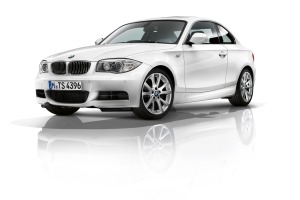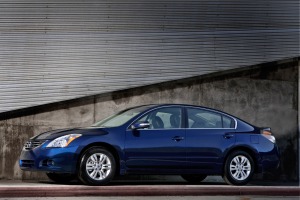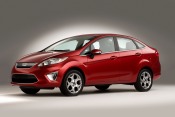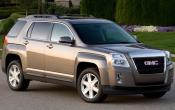- Save |
- Email |
- RSS |
- Newsletter
What You Should Know Before Buying a Hybrid
Hybrid Buying Guide | What You Should Know Before Buying a Hybrid | View Other Buying Guides
Size/Market Segment
Hybrid vehicles range in size from compact economy sedans to nine-passenger full-size SUVs. The largest population of hybrids resides in the midsize sedan segment. Most hybrids are based on regular vehicles like Ford's Fusion Hybrid, while some are bespoke designs like Toyota's Prius or Honda's CR-Z.
Price
Generally, hybrid vehicles are almost 20 percent more expensive than their all-gas counterparts. The cheapest hybrid costs a little less than $20,000, while the most expensive luxury model costs more than $100,000. New federal fuel-economy requirements have caused almost every manufacturer to plan new hybrids, which should push down the price and increase the number of models available in the future.
Engine/Fuel Economy
Hybrids break up into two categories: those that are truly fuel-efficient and those that are just more fuel-efficient than their non-hybrid versions. The former boasts fuel economy numbers in the 40s and even 50s, while typically being slower than their non-hybrid counterparts. The latter category mostly consists of luxury models or SUVs, which generally match the power of V8 engines while achieving fuel economy on par with V6s. Fuel economy of about 20 mpg is typical, which is great for a vehicle like a Chevy Tahoe or BMW X6, but hardly what anyone would deem "fuel-efficient."
Safety
In general, hybrid vehicles are as safe as all-gasoline cars, but concerns have been raised about accidents that damage or expose the batteries for fear that electric shocks are possible. However, hybrids have been on the market for eight years now and accidents of this kind have not been reported. Additionally, manufacturers say they have taken steps to educate emergency responders so they can help accident victims without risking injury.
Luxury Features/Convenience
Most hybrids are at least offered with high-tech features like automatic climate control, navigation system, iPod interface, keyless startup systems and Bluetooth capability. Nifty readouts that show you in-depth information about fuel economy and the car's power flow are commonplace. Despite these features, though, lower-priced hybrids can sometimes lack more basic features like power seats despite the presence of more advanced equipment and higher prices. Luxury models are often packed to the gills with equipment, and represent top-line trims — the exception being the Mercedes-Benz S400 Hybrid, which is essentially the entry-model S-Class.
Passenger Capacity/Interior Space
Like most compact and midsize sedans, hybrids typically can transport four adults in reasonable comfort. Most hybrids have seats for five people, though Honda's CR-Z sport hybrid seats only two and the Chevy Volt seats four. Some hybrid SUVs can transport seven or eight passengers.
Cargo Capacity
Hybrids based on regular sedans typically lose between 3 and 5 cubic feet of trunk space due to the battery pack. Likewise, hybrid SUVs usually lack anything in the way of under-floor storage because the battery pack is located here, and payload capacity (the amount of weight you can safely carry inside or on top of the vehicle) may be slightly reduced. Dedicated hybrid models are packaged to avoid such a drop in cargo capacity, and since many are hatchback models, they provide more trunk space than non-hybrid sedans.
All Hybrids Are Not Created Equal
There are now three major hybrid types. A parallel hybrid system, like Toyota and Ford's, can power the vehicle using electricity, the gasoline engine or a combination of both. A mild hybrid system like Honda's uses its electric motor to assist the gasoline engine, but cannot power the vehicle by itself. This is generally cheaper and easier to develop for the manufacturer, but its operation is less seamless. Additionally, it doesn't achieve the same fuel economy and operation of its air-conditioner can be adversely affected. The newest type, a series plug-in hybrid like Chevrolet's Volt, is essentially an electric vehicle that uses a gasoline-powered engine to power the electric motor once the batteries are depleted.
Operating Costs
The big question is whether a hybrid vehicle's price premium is worth it given the amount of fuel you'll save. The shortest hybrid "payback time" you can expect is a couple of years, while a few expensive luxury models absurdly stretch hundreds of years — yes, hundreds. In terms of warranties, manufacturers typically offer longer coverage for the hybrid-specific components, usually eight years, so you're covered if something goes wrong with the batteries or electric motor. One of the few unknowns is the cost of replacing the hybrid batteries, though manufacturers contend the batteries are designed to last for the life of the vehicle.
More Information About Hybrids
Advertisement
Advertisement




